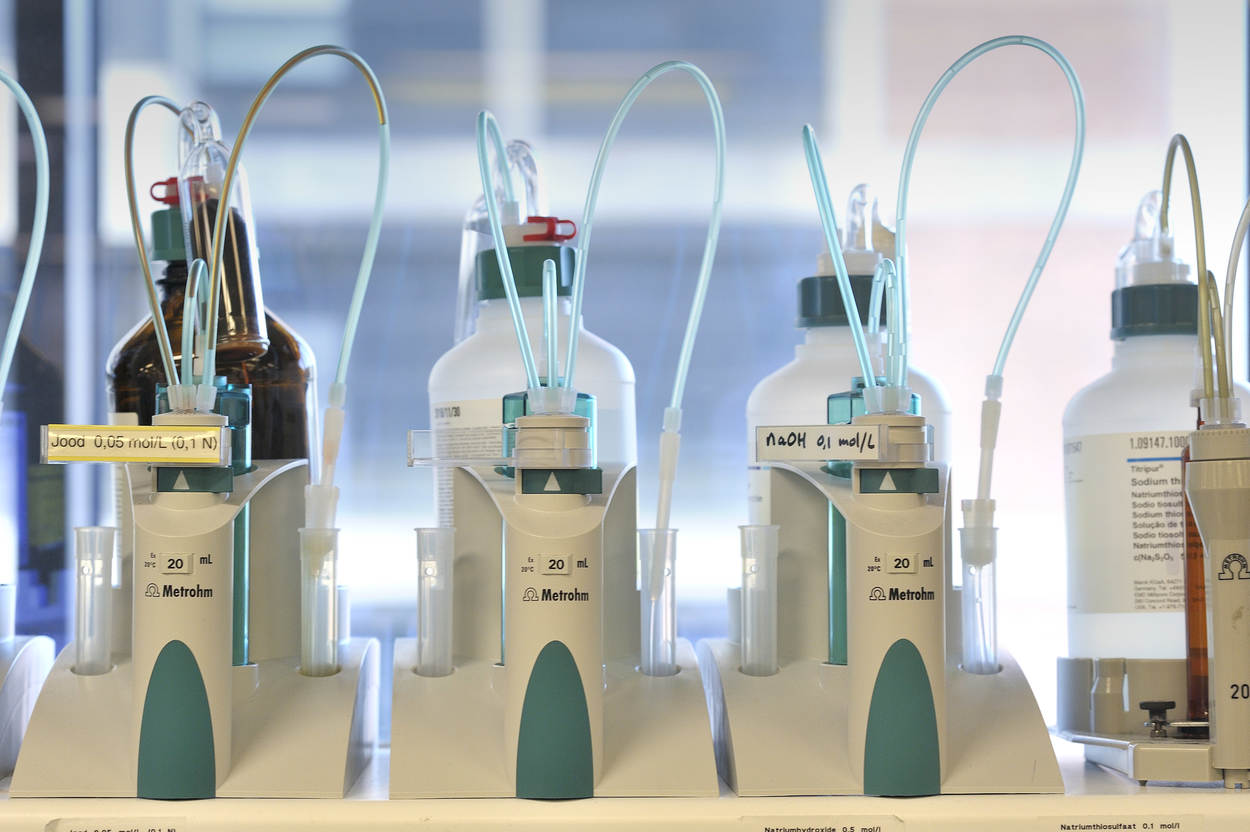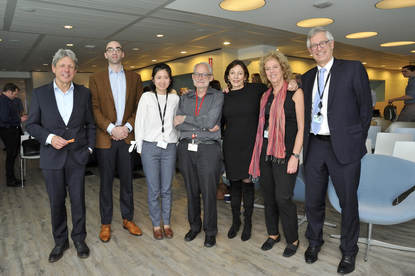Regulatory science provides the Medicines Evaluation Board (MEB) with up-to-date data, knowledge and expertise based on current scientific insights, for optimal evaluation and marketing authorisation of medicinal products and novel foods. This ensures an even better assessment of risks, efficacy and quality.
Research trajectories & programmes
On the MEB website you can find all the research trajectories and programmes the MEB supports.
The MEB’s Regulatory Science definition:
Regulatory Science is the science of developing and validating new standards and tools to evaluate andd assess the benefit/risk of medicinal products, facilitating sound and transparent regulatory decision making. Through analysis of regulatory frameworks itself and its effectiveness, however, Regulatory Science can also advance knowledge of these systems in general.
Regulatory science opens the door to optimal evaluation
In the first quarter of 2018 the MEB has organised the MEB Science Day:

Student Highlights: Talitha Basten
The past five months I was an intern here at the MEB. The subject of my project was the user aspects of dry powder inhalers. There is a need for more insight into what is considered critical for correct use of the inhalers, in particular the handling aspects. The aim of my project was to provide this insight and to provide guidance for the assessment of the critical aspects of the devices. The final report will provide recommendations for the handling studies, the scoring and acceptance norm. I have done my project with great pleasure and got to know different departments. I learned a lot.
Many errors are made when using inhalers. As a result, the treatment may not be effective. Patients struggle with the use, while inhalers are not self-explanatory. Almost every dry powder inhaler requires a different inhalation method. This confuses patients. Besides that patients often do not receive adequate training on how to use the inhaler.
Little is said about the handling aspects in the EMA guidelines. So my conclusion is that a protocol for a handling study should be implemented. The outcome of these studies will give a clear image of whether the inhaler is easy to use without errors that can jeopardise the efficacy of the treatment. The MEB can thus consistently assess whether the inhaler can be used correctly by the majority of the intended user group.


Theses highlights
-
Jorn Mulder started on 1 May 2017: Personalised medicine in regulatory science. In collaboration with the Antoni van Leeuwenhoek. Supervisor: Prof. Dr. J.H.M. Schellens (NKI-AvL), Co-supervisors: Dr. V.V. Stoyanova (CBG-MEB) and Dr. A.M.G. Pasmooij (CBG-MEB, UMCG). Personalised medicine has become a frequently discussed issue in drug development and approval. For example, recently, an accelerated approval to a drug was granted by the FDA for the treatment of solid tumours containing the same biomarker. The aim of our project is to facilitate the knowledge and application of personalised medicine in the European drug authorisation process, by investigating a selection of emerging issues in the context of personalised medicine.
-
Esther de Vries, MSc, started on 1 November 2017. Risk communication, the uptake and improvement of drug safety information for healthcare professionals. Supervisor: Prof. Dr. Petra Denig (UMCG), Co supervisor: Dr. Peter Mol (UMCG, MEB). This project will focus on the uptake and improvement of drug safety information for healthcare professionals, in particular in the hospital setting. We aim to identify whether and how current use of direct professional healthcare communication (DHPC) can be improved for the hospital setting. We also aim to develop and apply valid effect measures to study the impact of safety information, such as DHPCs. Furthermore, we will study the impact of safety issues communication by the authorities on media coverage, newspaper/social media.
Publication highlights
- Pieter Glerum: Interchangeability of generic drugs: A non-parametric pharmacokinetic model of gabapentin generic drugs
- For more information on ROADMAP and EXAG, you can visit the official ROADMAP website: www.roadmap-alzheimer.org. Visitors also have the opportunity to subscribe to the project’s quarterly newsletter.
- You can read more about the PRISM projects in the PRISM newsletter.







